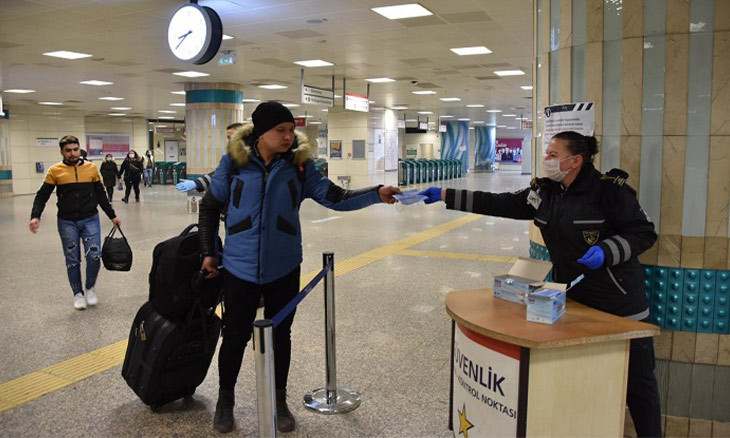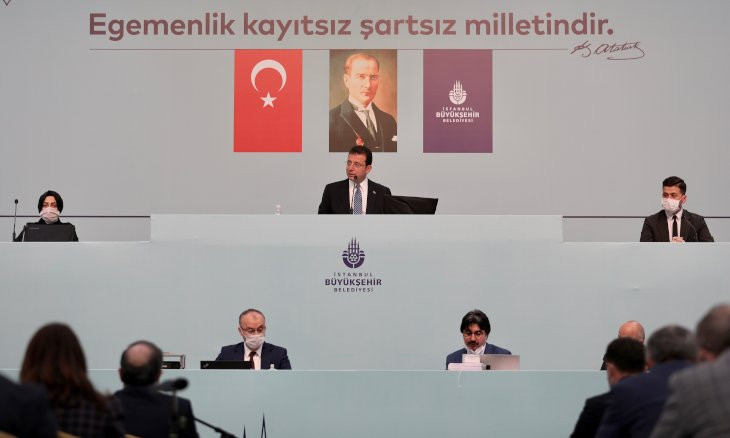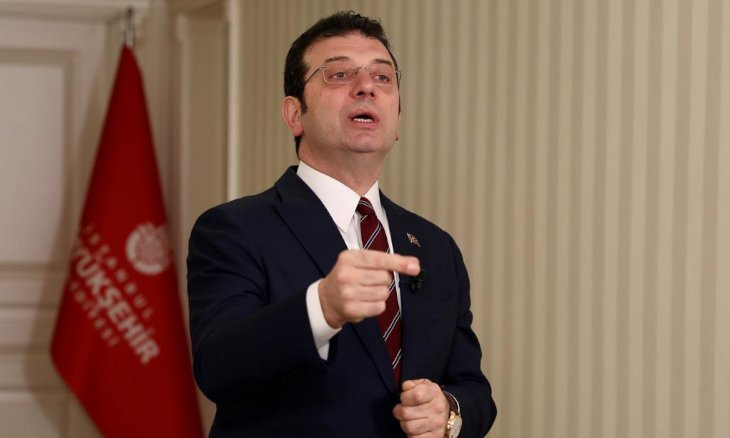The coronavirus report card for Turkey's municipalities
In the past four months, none of our municipalities prepared the infrastructure for washing our hands. They were not able to meet the sidewalk conditions of 1.5 meters width for the social distancing of pedestrians. Almost all of our 1,397 municipalities have failed according to these criteria, including opposition ones.
It has been six months since the coronavirus was detected in the world, and it has been four months since the first case was announced in our country. This may sound like a short while to you, but when you consider that in Turkey there have been more than 200,000 cases and more than 5,200 deaths, then this is quite a long period. Over this long period, the central government's actions are obvious, and the result of its actions are obvious: namely, that the epidemic has worsened recently. The government denies this.
In such times, reviewing what has been done, keeping an inventory, and noticing the issues are very important. Doesn’t the government love the method of “politics without memory”? In fact, the most important policy is to hide information, to censor and to erase records, right? On this point, the Freedom of Expression Association (İFÖD) has issued a report focusing exactly on this function. The government has also censored its own side, the pro-government media.
 'COVID-19 pandemic cost Istanbul municipality five million liras'
'COVID-19 pandemic cost Istanbul municipality five million liras'Why is this the case? It’s clearly because the government wants to monopolize knowledge.
When there is a war of this kind, the opposition, on the other hand, is keen on using only popular knowledge. It is not interested in the rest.
The government knows the power of observation and data, as well as the analysis and solutions that arise from the evaluation of the former. It is determined not to share any of this. In fact, only releasing one chart of information per day and stopping those who want to research the epidemic are examples of this. Recently, an investigation was started against a professor who shares his own data with the public and is an expert on public health. The investigation against Professor Kayıhan Pala, who is a member of the Turkish Medical Association (TTB) COVID-19 observation group, was launched by his own university.
While this is what the central government is doing, we can also take a look at what the local administrations are doing. Since the pandemic is progressing across the country, don’t our municipalities have a part to play in that? The golden rule of politics works differently: even if the government is wrong and you don’t behave correctly either, the government still comes out ahead.
 AKP members trim Istanbul Municipality's resources despite coronavirus pandemic
AKP members trim Istanbul Municipality's resources despite coronavirus pandemicThe role of local administrations
We have a central government that has cared about the health of contractors more than public health for four months. The central government is bad, but are our municipalities any better in their response? As opposed to the government, how many of them listen to the doctors? We can evaluate our municipalities by checking the three most basic and critical points.
Washing our hands
Our hands have a very important role in transmitting the virus and carrying it into the body. Doctors recommend that we wash our hands. This is one of the first rules of COVID-19. Moreover, most of the doctors in this process have said that, if they had been allowed, they could have “formed the infrastructure for handwashing in two months.”
What needs to have been done here is very simple: handwashing facilities should have been built within the city. This has not happened. There is not even one municipality in Turkey that has created the physical infrastructure for handwashing in central locations in the city.
Our local administrations, instead of creating handwashing stations, have poured chemicals in parks and squares — affecting only the bottom of our feet. In this period, thousands of liters of chemicals penetrated the soil in the city. They went on doing this despite the objections of the Coronavirus Science Committee and public health experts.
 Istanbul mayor calls on state-owned Vakıfbank to send donated money back to municipality
Istanbul mayor calls on state-owned Vakıfbank to send donated money back to municipalityPavement suitable for physical distance
Streets and avenues have become very important due to the outbreak. In Turkey, both sidewalks and pedestrian rights are almost non-existent. Also, almost all of our pavements are non-standard. For instance, according to the Turkish Standards Institution (TSE) standards, depending on road conditions, the width of the pavement can go down to three meters. It is a blessing to have a sidewalk as wide as three meters in Turkey. It’s embarrassing, but according to the TSE, in the places where a sidewalk cannot be built, the width of the shoulder of the road should be between 0.75 and 2 meters. According to this, in the capital city of Ankara, we can say that “there are no sidewalks, there are only shoulders.”
None of Turkey’s municipalities have pedestrianized. None of them extended the sidewalks. They only poured more asphalt. So much so that, despite the objections of residents, they continued asphalting. For instance, in Dikili, İzmir, the mayor was as daring as to say that “People are fed up with dust,” even though the people of Dikili were against petroleum-derived asphalt.
Transportation
Not everyone has the ability to buy a car, and there’s no such place in the world like that in any case. In this period, Turkey’s municipalities did not arrange transportation according to the coronavirus pandemic. As a matter of fact, the things they have to do for the pandemic are just the things they already had to do. When the pandemic made them mandatory, they still did not take any of the appropriate steps. A more integrated, functional and comfortable mass transportation structure should have been formed and those existing structures should have been managed according to this logic. But none of the local administrations took even a single step in this regard.
As a result of municipalities failing to offer any solutions, people have been forced to buy cars. The outcome has not been good. Today, second-hand car prices have shot up, surpassing the prices of new cars. If the transportation issue had been solved by the municipalities, would there have been so many people struggling to buy a car in this economic downturn?
These three items do not mean everything, but they do mean a lot. There is not even one local administration that has made an affirmative move in any of these three indicators. Not even one.
Appointed mayors
The Ministry of Health has started issuing COVID-19 reports. Even though their content is far from being satisfactory, they do tell a lot. In the June report, in the last week of the month, for every 100,000 people, the number of cases are highest in southeastern Anatolia. The Marmara region and the central Anatolian region, which contain Istanbul and Ankara respectively, follow in the number of cases. In southeastern Anatolia, there is no democracy and elected mayors are scarce. There are too many appointed trustees in place of mayors. Well, what do we have in Istanbul and Ankara?
Map: The number of COVID-19 incidents over the past seven days per 100,000 people according to the NUTS-1 from the Nomenclature of Territorial Units for Statistics (NUTS).
More than 200,000 people catching the virus and more than 5,200 people losing their lives is a very big issue. The first authority responsible in this is the central government due to their failure to take precautionary measures and for hiding information from people. The second responsible authority is the local governments - that is, the municipalities.
Doctors are asking for very simple and basic things. In the past four months, none of our municipalities prepared the infrastructure for washing our hands. They were not able to meet the sidewalk conditions of 1.5 meters width for the social distancing of pedestrians. They did not take steps to make mass transportation productive, comfortable and integrated. Almost all of our 1,397 municipalities have failed according to these criteria, including opposition ones.
 The rise of Turkish main opposition CHP in municipalities
The rise of Turkish main opposition CHP in municipalities

